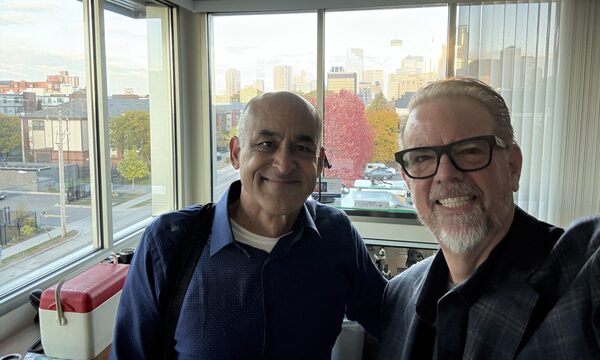In this post I want to revisit a topic from my previous post “Faithful Wisdom for Significance and Suffering” by expanding on the message of Ecclesiastes. It’s important to acknowledge our feelings of frustration and futility in life. As frail humans we all feel the pain of displacement and loss in our experiences of oppression, destruction, death and chaos. We feel that the world is broken — we do. Our life experiences are often frustrating, absurd, unfair, and sometimes they can feel meaningless.
This feeling is what Qohelet in Ecclesiastes calls hebel, best translated as “meaningless” (cf. NIV, NLT). Qohelet is the royal speaker in Ecclesiastes 1:12–12:7 who demonstrates the futility of faithless living or the meaningless existence of living “under the sun.” “Under the sun” is where Qohelet examines the frustrating facets of life like inevitable death, oppressive injustice, and inscrutable timing [1]. These three problems are Qohelet’s reasons why “everything is meaningless…completely meaningless” (Eccl. 1:2; 12:8 NLT).
Consider topics like death and aging (Eccl. 2:14-16; 7:1-4; 8:8; 9:1-3; 12:1-7). Death is frustrating because it happens to everyone without discriminating good from bad people or young from old people. “None of us can hold back our spirit from departing. None of us has the power to prevent the day of our death. There is no escaping that obligation, that dark battle” (Eccl. 8:8a NLT).
Or consider injustice. Injustice is frustrating because it may happen to wise people who play by the rules (Eccl. 4:1; 7:15-16; 8:10-14; 9:1-3, 11). Our circumstances may feel unfair when wicked people prosper and righteous people suffer (Eccl. 3:16; 7:15; 8:10, 14). Qohelet says: “Again, I observed all the oppression that takes place under the sun. I saw the tears of the oppressed, with no one to comfort them. The oppressors have great power, and their victims are helpless” (Eccl. 4:1 NLT).
We might also consider Qohelet’s problem of timing. Time is frustrating because events often feel random, and we don’t understand what God is planning (Eccl. 3:1-11; 8:7; 9:11-12). Tremper Longman III verbalizes Qohelet’s take on timing: “though God created everything for the right time, he does not allow humans to know when that right time is” [2]. Many people are familiar with the poetry of Ecclesiastes 3: “For everything there is a season, a time for every activity under heaven. A time to be born and a time to die… A time for war and a time for peace” (Eccl. 3:1-2, 8b NLT). But the passage continues to express exasperation about our inability to discern the times. “What do people really get for all their hard work? I have seen the burden God has placed on us all. Yet God has made everything beautiful for its own time. He has planted eternity in the human heart, but even so, people cannot see the whole scope of God's work from beginning to end” (Eccl. 3:9-11 NLT). Like Qohelet, we often feel unable to read the times.
But we are not left here to wallow in Qohelet’s despair. There is a different way to endure our troubles, and that is by faith. True faith is acknowledging God’s control of time and waiting on him. Faith in the Lord of time makes all the difference in the world. God knows our times of life and death and everything in between. God knows our pain and suffering. God has a meaningful plan, and God is the righteous Judge who will deal with good and bad in the afterlife.
This “but God” pathway is a faith perspective. It is an “above the sun” worldview that is meaningful even when we are living in very difficult times. This meaningful perspective is taught by the wise teacher who speaks in the prologue and epilogue (Eccl. 1:1-11; 12:8-14), especially in “the end of the matter” (Eccl. 12:13-14): “That's the whole story. Here now is my final conclusion: Fear God and obey his commands, for this is everyone's duty. God will judge us for everything we do, including every secret thing, whether good or bad” (Eccl. 12:13-14 NLT). Now that’s good news!
Trusting in God and in his teachings (Eccl. 12:13) as well as trusting that he is the Judge (Eccl. 12:14) are the pathways of faithful wisdom when our suffering feels frustrating. Fearing God and following his word (Eccl. 12:13) as well as trusting him about the future (Eccl. 12:14) is our blessed hope which can change our present lives. When we have an “above the sun” lens, divine revelation and eschatology can transform us and bring meaning to our lives.
I think the apostle Paul expresses a similar sentiment when he says “That is why we never give up. Though our bodies are dying, our spirits are being renewed every day. For our present troubles are small and won't last very long. Yet they produce for us a glory that vastly outweighs them and will last forever! So we don't look at the troubles we can see now; rather, we fix our gaze on things that cannot be seen. For the things we see now will soon be gone, but the things we cannot see will last forever” (2 Cor. 4:16-18 NLT).
Paul is advocating a faith lens, an “above the sun” perspective. It’s an eternal view about our temporal lives. Both Paul and the wise teacher at the end of Ecclesiastes advocate a meaningful trajectory during the experiences of death and loss, injustice and oppression. They advocate a meaningful pathway especially when people are unable to apprehend the times or understand their own stories. They encourage us to “live in light of the future judgment” [3]. They encourage us to “never give up” because God has beautiful purposes for “our present troubles” which “produce for us a glory that vastly outweighs them and will last forever!” (2 Cor. 4:16-17 NLT).
Notes
[1] For these three themes in Ecclesiastes see Tremper Longman III, The Fear of the Lord Is Wisdom: A Theological Introduction to Wisdom in Israel (Baker, 2017), pp. 26-42.
[2] Longman, 32.
[3] Longman, 40.
 Biola University
Biola University.jpg)




.jpg)